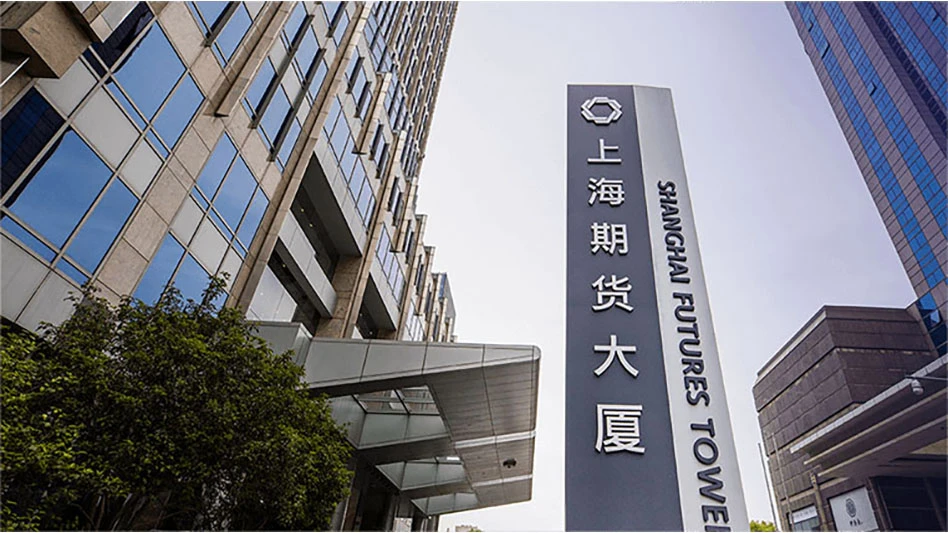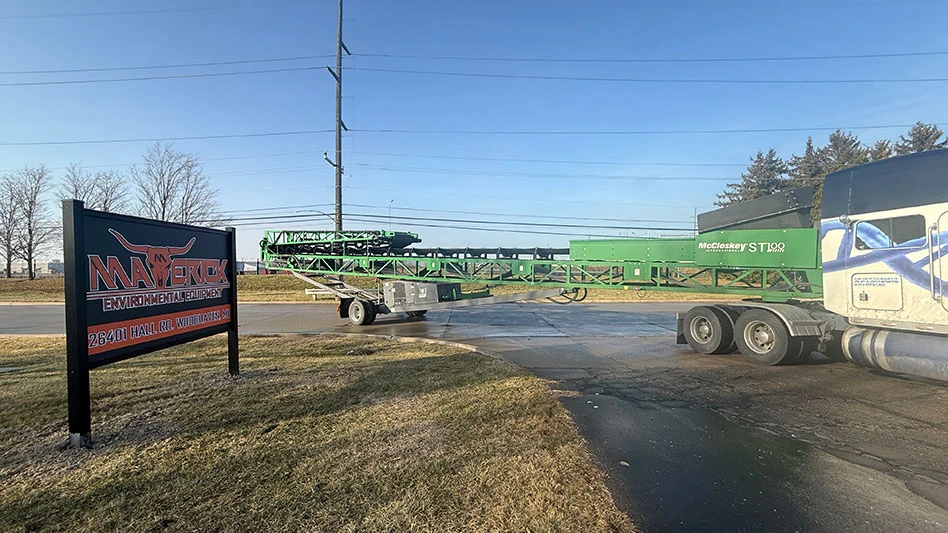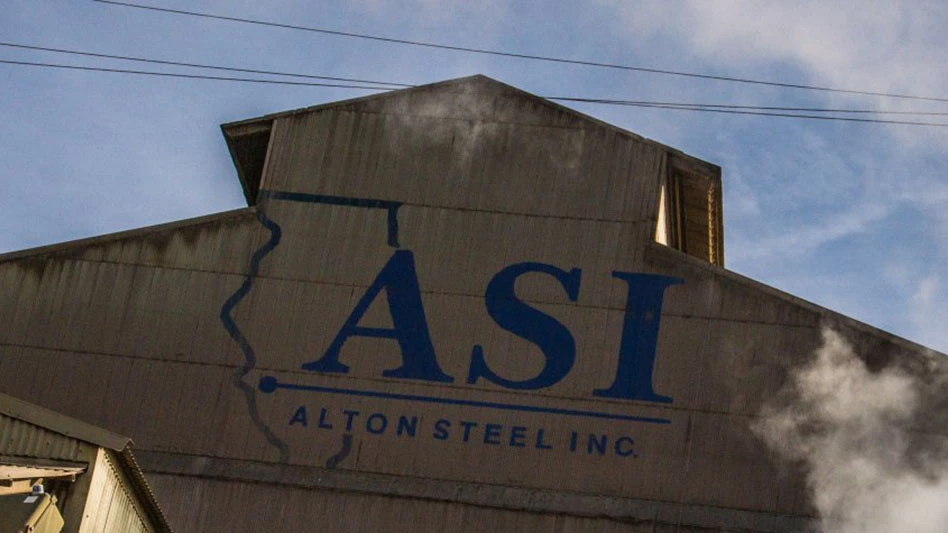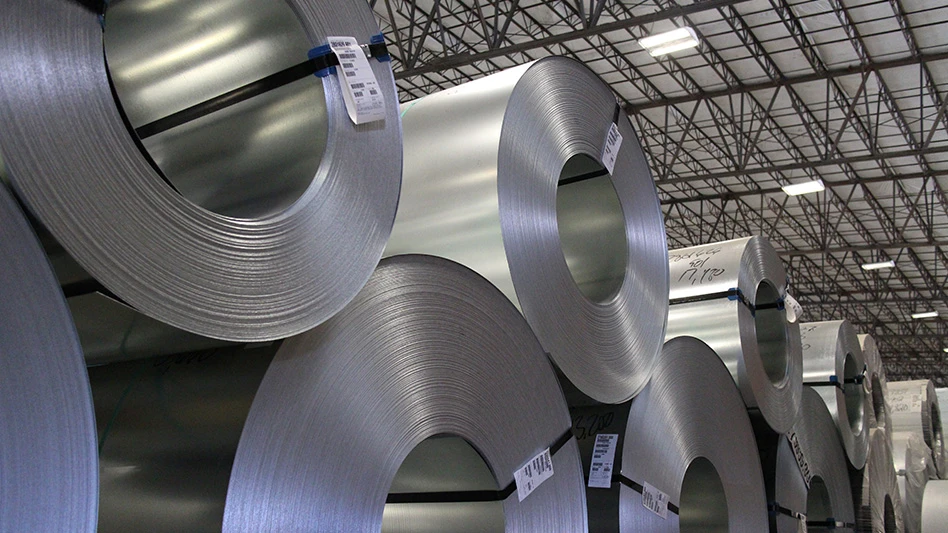Just as the scrap recycling industry has become progressively more sophisticated with time, the automobile recycling industry is also evolving. Today’s auto dismantler, besides having access to a variety of technological tools, is committed to total recycling and to offering competitive customer service. One such company is Waterloo Auto Parts, Waterloo, Iowa.
"The automotive recycling industry has really changed since those ‘junk-yard’ days, and even in the last 10 years there have been some dramatic changes in this industry," explains Greg Seitz, yard manager of Waterloo. "Today, we have computer parts tracking, enclosed parts storage and a stronger commitment to serving the customer. It’s a big and important business."
MAKING AN IMPACT
Waterloo Auto Parts is situated on nine acres in northeast Iowa. The company began back in the 1940s, and the current owner, Denny Osborn, purchased the business in 1980 at age 25. Today, Osborn is a member of the Automotive Recyclers Association, Fairfax, Va., and a board member of the Iowa Automotive Recyclers Association, Sioux Center, Iowa. He employs 14 people, and his business has three buildings for storing parts, an indoor dismantling bay, an administration building, a computer parts tracking system, several forklifts, two John Deere loaders, two rollbacks and a new Al-jon car crusher. The company claims to be the biggest auto recycler in northeast Iowa, and recently bought six more acres to provide room for expansion.
The rollbacks – flatbed trucks that transport wrecked vehicles – consist of a two-car Kodiak and a four-car GMC. The flatbed tilts back so the vehicles can be easily loaded. These rollbacks are used to transport auto hulks to the yard, and then a semi-trailer delivers the hulks to shredding operations once they have been stripped of usable parts and flattened. Most of the incoming vehicles come from insurance companies that have deemed the cars and light trucks no longer driveable. Waterloo has contracts with several of these companies.
When a vehicle comes into Waterloo, it first goes to the indoor dismantling area to be stripped of most of its parts. The parts are cleaned, tagged and entered in the company’s computer for instant retrieval. "It’s a far cry from what we were doing years ago," says Seitz. "Now we can locate a part in seconds."
The current inventory of parts ultimately determines whether or not a part gets pulled from the vehicle. "If we have three or four of the same part already on the shelf, then we won’t pull any more of those parts," he explains. "We’ll just tag them and leave them in the hulk until our inventory runs down."
Also at the dismantling station, all fluids are removed, including transmission and brake fluid, engine oil and coolant. The fluids are collected onsite and recycled by an outside vendor. Freon from air conditioning systems is collected and recycled onsite with a new piece of equipment that accomplishes the refrigerant collection and recycling in one operation.
"Doing this work inside not only makes dismantling easier, but it is safer environmentally," says Osborn. "This way if any of the fluids are spilled we can contain them and clean them up without worrying about seepage into the ground."
Vehicle tires are also removed and another outside vendor collects and recycles them. Engine blocks are removed and sold to a core buyer for the engine rebuilding industry. Those that are not rebuildable are sold for scrap. "There’s just not much waste anymore in this business," says Seitz.
When the vehicle finally leaves the dismantling bay, it is ready to be placed in the yard where it will remain until the remainder of the onboard parts are pulled, or it is time to be flattened and then shipped out to one of several auto shredders.
Waterloo processes about 700 vehicles annually. "We are at capacity all the time," says Seitz, "so it is critical that we constantly move vehicles in and out. We try to maintain cars and light trucks that are of model year 1990 or later, because that’s where most of the money is in this business."
Helping to move spent auto hulks efficiently out of the yard is the company’s new Al-jon Impact V car crusher. "We are one of the first auto recyclers to get one," says Seitz, "and we like it a lot. It is efficient and economical, and it gives a better crush." The company crushes vehicles for two reasons, he says. One, to create more room in the yard; and two, to obtain another source of revenue.
"Like everyone else, we like to move hulks out of here when the price for ferrous scrap is good," says Seitz. "If the price is down, we start stockpiling hulks until the price picks back up again. That’s when the crusher really comes in handy."
The company strips just about every item possible off of the hulks before crushing them, including high-value aluminum and even integrated plastic dashboards. But Seitz admits there are still many plastic items that simply are too time consuming to pull off. "Cars are becoming more sophisticated and complicated," he says. "We would like to say we can pull off everything, but it is just not feasible."
Most plastics, therefore, get crushed with the hulk which is eventually processed in a heavy-duty shredder at a scrap yard. There ferrous and nonferrous metals are separated; however, the plastics, rubber and glass become part of the leftover material stream commonly known in the recycling industry as shredder fluff.
|
THE FUTURE OF AUTO DISMANTLING |
|
In an attempt to push the boundaries of auto dismantling and recycling even further, a new operation called Comprehensive Automobile Reclamation Service in Baltimore reportedly is tackling the dismantling of vehicles in the same fashion as automakers build them – on an assembly line. Although the management of CARS would not discuss their methods and financial arrangements, sources say that CARS is using a disassembly-line technique to totally break cars down. General Motors was identified as a financial backer of the company, but a spokesperson from GM has denied any direct financial involvement, saying that the company is currently only buying scrap metal from CARS.. |
CYBERSPACE PARTS
Waterloo tries to stock the parts that are most in demand, but Osborn knows he can’t stock it all. To fill any voids, the company belongs to a network of auto salvage parts dealers that are linked through a satellite network.
"Computerizing our business has been the biggest change that we have made," says Osborn.
Overall, Osborn is proud that so little is wasted in his business. "We recycle everything we can, and do a pretty good job at it," he says.
The author is managing editor of Recycling Today.

Explore the October 1996 Issue
Check out more from this issue and find your next story to read.
Latest from Recycling Today
- Stadler equips Spanish MRF
- SSAB finishes 2025 with decreased revenue
- Vecoplan appoints CFO
- Aurubis raises full-year forecast
- Levitated Metals adds LIBS sorting technology
- Redwood Materials closes on $425M in Series E financing
- Updated: Wieland Chase expands northwest Ohio facility
- Recovered paper traders report lukewarm market





